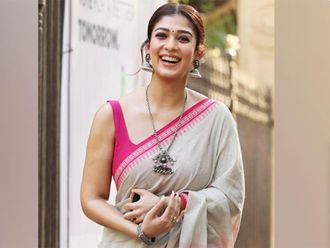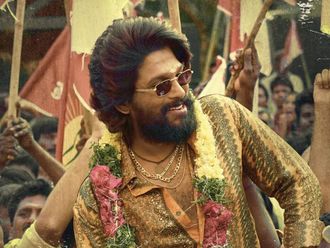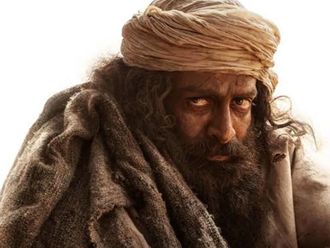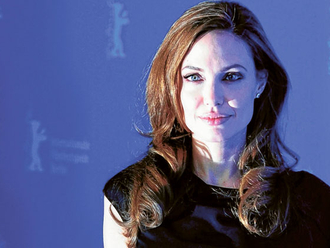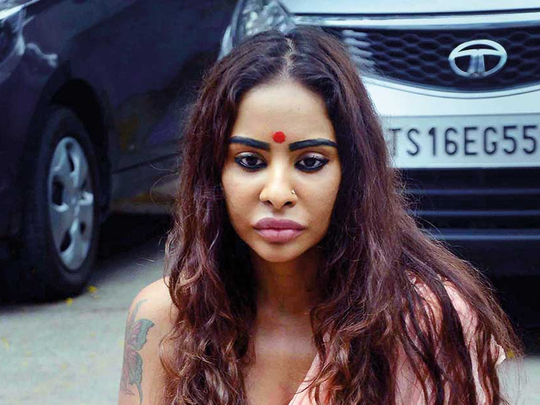
There was no shortage of television cameras when Sri Reddy, an Indian film actress, took off her top.
Reddy, a middling star in South India, announced on Saturday that she was staging a protest against sexual harassment in the Indian film industry, one of the bolder #MeToo-type moments that the country has seen.
She marched up to the offices of a film commission, stripped half-naked and stood there glaring at a bank of cameras, hands covering her breasts.
“Are we girls, or things to play with?” she asked.
She was then whisked off by police to face possible charges of public nudity.
India makes more movies than anywhere else. Bollywood and its smaller cousins (such as Mollywood, Tollywood and Gollywood — all named after the areas where the films are shot or the languages they use) represent a hugely influential industry.
Though the #MeToo movement has not shaken society in India the way it has in the US, several Indian actresses, after abuse allegations were made against US producer Harvey Weinstein, stepped forward to complain about a pervasive culture of sexual harassment.
The allegations included claims they had been groped, propositioned and forced to demean themselves to get work. Reddy, 28, has been one of the most vocal. In recent days, she has lobbed serious accusations against powerful men in the film business.
After videos and pictures of a topless Reddy spread quickly on the internet, the question turned to what would be the impact. Reddy is not widely known across India, and she staged her protest in Hyderabad, a big city in the south-centre of the country, but not nearly as important for the movie industry as Mumbai.
Deepa Narayan, a social scientist who has recently published a book on how women are treated in India, said Reddy might face problems. “The first thing that happens when a woman in India takes a bold move, she is dismissed,” Narayan said.
That seems to have already begun. Some actors have taken swipes at Reddy, accusing her of staging the protest just to bolster her career, an accusation that she has rejected.
But, Narayan said, “If she can get a few women to rally around her, maybe it will lead to real change.”
She added: “What India needs is a powerful man to be implicated.”
India can be an especially harsh place for women. Many have to reckon with arranged marriages and being forced to marry when still children. Horrific abuse cases, like the brutal rape and killing of a young woman on a bus in 2012, have prompted great outcry, but, many women would argue, have changed the landscape very little.
The sexes in India are often strictly separated. Many families favour male babies to the extent that they abort female foetuses, leading to a gender imbalance in some areas that makes relations between men and women even worse.
“The typical Indian male’s psychology stems from a background where he has never seen women enjoying all these freedoms, like smoking and drinking,” said Ashis Nandy, a prominent political sociologist, author and commentator.
“Men in the film fraternity are no exception,” he added. “Their abuse of women rests on the assumption that in a contractual relationship, they have a right to sexually abuse her.”
Reddy, whose Facebook page has about 6 million “likes,” started her career as an anchor on a Telugu-language news channel before moving into film.
She has appeared in a few movies, including Nenu Nanna Abaddam and Aravind 2. In interviews before her protest, Reddy said that she wished directors in Central India would hire more local actors and that she had struggled to make a breakthrough.
The actress said some filmmakers had demanded that she send them nude videos before considering hiring her for a part. She complied, she said, and then didn’t even get the part.
“Aren’t we beautiful and good looking? Aren’t we talented?” Reddy said in an interview this year. “Then why aren’t we being given opportunities?”



